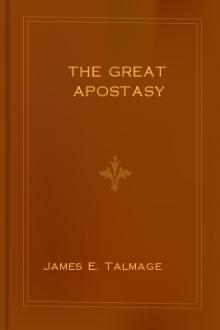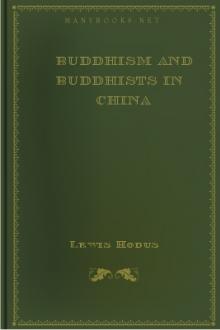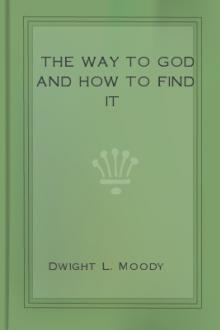Genre Religion. Page - 6

In the first chapter, § 7, she positively asserts that she was rather less than twelve years old at the death of her mother, whereas we know that she was at least thirteen years and eight months old. As to the profession we have overwhelming evidence that it took place on the 3rd of November, 1536, and her entrance in the convent a year and a day earlier. To begin with, we have the positive statement of her most intimate friends, Julian d'Avila, Father Ribera, S.J., and Father Jerome Gratian. Likewise doña Maria Pinel, nun of the Incarnation, says in her deposition: "She (Teresa of Jesus) took the habit on 2 November, 1535." [6] This is corroborated by various passages in the Saint's writings. Thus, in Relation VII., written in 1575, she says, speaking of herself: "This nun took the habit forty years ago." Again in a passage of the Life written about the end of 1564 or the beginning of the following year, [7] she mentions that she has been a nun for over twenty-eight years, which points to her pr

e chose twelve men, whom He ordained to the apostleship:--"And He ordained twelve, that they should be with Him, and that He might send them forth to preach."--(Mark 3:14.) Again: "And when it was day, he called unto him his disciples: and of them he chose twelve whom also he named apostles."--(Luke 6:13; compare Matt. 10:1, 2.) The twelve special witnesses of Him and His work were sent out to preach in the several cities of the Jews. On this, their first mission, they were instructed to confine their ministrations to the house of Israel, and the burden of their message was "The kingdom of heaven is at hand."--(Matt. 10:7; study the entire chapter.) They were told to use the power with which they had been invested by ordination, in preaching, in healing the sick, in raising the dead even, and in subduing evil spirits; the Master's admonition was, "Freely ye have received, freely give." They were to travel without money or provisions, relying upon a higher power to supply their needs through the agency of thos

e of a personal God.
Conscience in man says: "Thou shalt," and "Thou shalt not," "I ought," and "I ought not." These mandates are not self-imposed. They imply the existence of a Moral Governor to whom we are responsible. Conscience,--there it is in the breast of man, an ideal Moses thundering from an invisible Sinai the Law of a holy Judge. Said Cardinal Newman: "Were it not for the voice speaking so clearly in my conscience and my heart, I should be an atheist, or a pantheist, when I looked into the world." Some things are wrong, others right: love is right, hatred is wrong. Nor is a thing right because it pleases, or wrong because it displeases. Where did we get this standard of right and wrong? Morality is obligatory, not optional. Who made is obligatory? Who has a right to command my life? We must believe that there is a God, or believe that the very root of our nature is a lie.
f) The Argument from Congruity.
If we have a key which fits all the wards of the lock, we know that it is t

teraryability and religious fervor to the spreading of the new religion andits success was in no small measure due to their efforts. As a result ofthis early association the tenets of the two religions seemed so muchalike that various emperors called assemblies of Buddhists and Taoistswith the intention of effecting a union of the two religions into one.If the emperor was under the influence of Buddhism he tried to force allTaoists to become Buddhists. If he was favorable to Taoism he tried tomake all Buddhists become Taoists.
But such mandates were as unsuccessful as other similar schemes havebeen. In the third century A. D. after the Han dynasty had ended, Chinawas broken up into several small kingdoms which contended for supremacy,so that for about four hundred years the whole country was in a state ofdisunion. One of the strong dynasties of this period, the Northern Wei(386-535 A. D.), was distinctly loyal to Buddhism. During itscontinuance Buddhism prospered greatly. Although Chinese wer

beginning anti-monastic. It is not rare for history to have similar contradictions to record. The meek Galilean who preached the religion of a personal revelation, without ceremonial or dogmatic law, triumphed only on condition of being conquered, and of permitting his words of spirit and life to be confiscated by a church essentially dogmatic and sacerdotal.
In the same way the Franciscan movement was originally, if not the protest of the Christian consciousness against monachism, at least the recognition of an ideal singularly higher than that of the clergy of that time. Let us picture to ourselves the Italy of the beginning of the thirteenth century with its divisions, its perpetual warfare, its depopulated country districts, the impossibility of tilling the fields except in the narrow circle which the garrisons of the towns might protect; all these cities from the greatest to the least occupied in watching for the most favorable moment for falling upon and pillaging their neighbors; sieges terminat

invariable custom of the house; and sat in a dead silence, that seemed natural to the great sober room.
This, however, was not for want of a topic; on the contrary, they had a matter of great importance to discuss, and in fact this was why they dined tete-a-tete. But their tongues were tied for the present; in the first place, there stood in the middle of the table an epergne, the size of a Putney laurel-tree; neither Wardlaw could well see the other, without craning out his neck like a rifleman from behind his tree; and then there were three live suppressors of confidential intercourse, two gorgeous footmen and a somber, sublime, and, in one word, episcopal, butler; all three went about as softly as cats after a robin, and conjured one plate away, and smoothly insinuated another, and seemed models of grave discretion: but were known to be all ears, and bound by a secret oath to carry down each crumb of dialogue to the servants' hall, for curious dissection and boisterous ridicule.
At

l jealousy. Partly owing to the general downward tendency of the age, but mainly on account of the interference of the secular authorities with ecclesiastical appointments, the gravest abuses had manifested themselves in nearly every department of clerical life, and the cry for reform rose unbidden to the lips of thousands who entertained no thought of revolution. But the distinction between the divine and the human element in the Church was not appreciated by all, with the result that a great body of Christians, disgusted with the unworthiness of some of their pastors, were quite ready to rise in revolt whenever a leader should appear to sound the trumpet-call of war.
Nor had they long to wait till a man arose, in Germany, to marshal the forces of discontent and to lead them against the Church of Rome. Though in his personal conduct Luther fell far short of what people might reasonably look for in a self-constituted reformer, yet in many respects he had exceptional qualifications for the part that he

is finding out. It "passeth knowledge" (Eph. iii. 19).
Nothing speaks to us of the love of God, like the cross of Christ. Come with me to Calvary, and look upon the Son of God as He hangs there. Can you hear that piercing cry from His dying lips: "Father, forgive them; for they know not what they do!" and say that He does not love you? "Greater love hath no man than this, that a man lay down his life for his friends" (John xv. 13). But Jesus Christ laid down His life for his enemies.
Another thought is this: He loved us long before we ever thought of Him. The idea that he does not love us until we first love Him is not to be found in Scripture. In 1 John iv. 10, it is written: "Herein is love, not that we loved God, but that He loved us, and sent His Son to be the propitiation for our sins." He loved us before we ever thought of loving Him. You loved your children before they knew anything about your love. And so, long before we ever thought of God, we were in His thoughts.
What

an respect to degrade hisChristian dignity. In whatever company he might be, he alwayssaluted the Blessed Sacrament when passing a Church; and he nevermet a priest without paying him a mark of respect. A word from hislips sufficed to silence whosoever dared blaspheme in his presence.
In reward for his virtues, God showered even temporal blessings onHis faithful servant. In 1871 he was able to give up his businessas a jeweller, and retire to a house in the Rue St. Blaise. Themaking of point-lace, however, begun by Madame Martin, was stillcarried on.
In that house the "Little Flower of Jesus" first saw the sunshine.Again and again, in the pages of her Autobiography, she callsherself by this modest name of the _Little Flower,_ emblematic ofher humility, her purity, her simplicity, and it may be added, ofthe poetry of her soul. The reader will learn in the Epilogue howit was also used by one of her favourite martyr-saints--the nowBlessed Théophane Vénard. On the manuscript of her Autobiography

miled slowly, showing a row of very white, strong teeth.
"I know, auntie," she said. "No; I shouldn't think Laurie'll mind much. Perhaps he'll go back to town in the morning, too."
"No, my dear, he's staying till Thursday."
* * * * *
There fell again one of those pleasant silences that are possible in the country. Outside the garden, with the meadows beyond the village road, lay in that sweet September hush of sunlight and mellow color that seemed to embalm the house in peace. From the farm beyond the stable-yard came the crowing of a cock, followed by the liquid chuckle of a pigeon perched somewhere overhead among the twisted chimneys. And within this room all was equally at peace. The sunshine lay on table and polished floor, barred by the mullions of the windows, and stained here and there by the little Flemish emblems and coats that hung across the glass; while those two figures, so perfectly in place in their serenity and leisure, sat before the open fire-place and contemplate